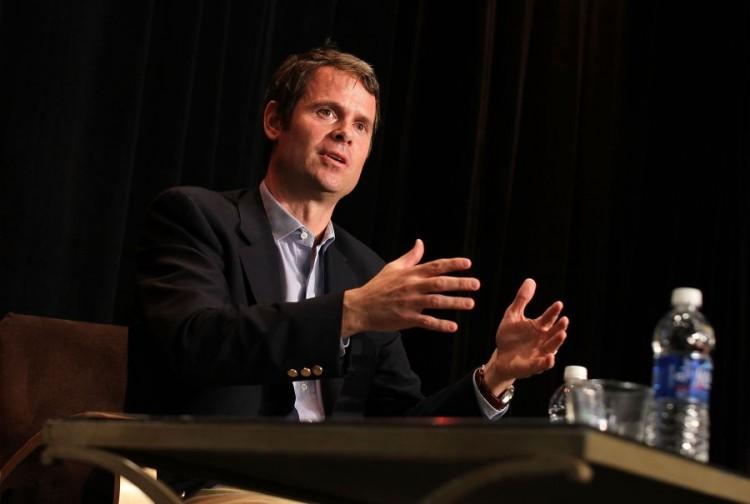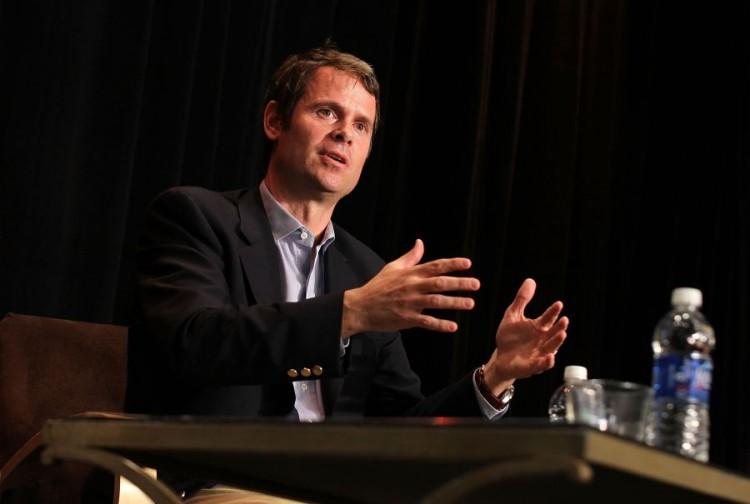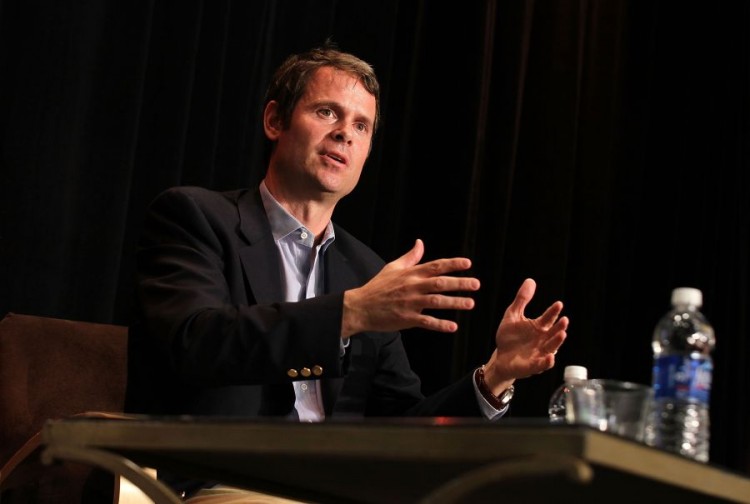Joe, a high school student, announces at the dinner table that he has joined a band, vowing to dedicate a large portion of his time to a musical career.
Instead of dropping jaws and shattering plates, the parents respond with approval.
Tim Westergren, the co-founder of Pandora Media Inc., relayed the anecdote at the South by Southwest Conference last month. He hopes such a scenario can be a general reality one day.
At the conference, Westergren said he hopes Pandora can help a musician’s career become a “respectable middle class job,” according to Entrepreneur.com.
Oakland, Calif.-based Pandora, which runs its namesake internet radio service that creates individual channels to match a listener’s taste—through the Music Genome Project—comprehensively categorizing each song according to its melody, harmony, rhythm, instrumentation, arrangement, lyrics, and vocal harmony. The project started in early 2000, states the Pandora website.
Independent artists can submit a CD or mp3 tracks of their songs. If approved by Pandora, the song will play alongside popular songs that have similar a music “genome,” explains Pandora on its website.
“Pandora thrives on the little-known and the yet-to-be-discovered,” the company says.
Things are going to change for musicians, whether they are “successful pop stars or starving,” Westergren said in a video interview with Intel Corp. “You’re going to have a much more democratic and inclusive form of radio that a lot of musicians can access.”
Westergren claims there will be a “new teir” of musicians that will get so much exposure through personalized radio that they can “actually make a living.”
“That will fundamentally change the complexion of the music industry at large,” he said.
“There will come a time on Pandora when you'll be able to log in as a musician and plot your music,” he told a crowd of Pandora users at a town hall meeting in Denver.
Musicians will be able to locate the area of their largest fan base and invite them to attend a concert. “We can really help build a musical middle class. There are going to be 2 billion people on Pandora one day, and we’re going to plug artists by the tens of thousands into that,” Westergren said.
Pandora’s Rise
Active Pandora users have grown from 31 million to 49 million as of Feb. 2012, from the same month in 2011, states a Pandora press release.
Listener hours increased by 101 percent since last year. The hours of 125 million registered users grew from 483 million last year, to 975 million as of last month.
Pandora signed recent car partnerships with companies such as Acura and Kia, totaling 23 automotive partnerships.
“The car is one of the most popular venues for radio listening...making Pandora as easy and natural as listening to traditional radio,” said Jessica Steel, EVP of business and corporate development for Pandora.
According to Panos Panay, CEO and Founder of Sonicbids, “music listeners are moving away from the mass-produced music consumption habits of the broadcast media to the more tailored and personalized experiences of the social media age.”
Although it is “still unclear how much of this revenue will find its way back to the actual performer and what form that revenue will take,” Panay said in his report: “Rethinking Music: The Future of Making Money as a Performing Musician.”
“But whatever industry attracts money and talent will inevitably succeed... And there’s a lot of money going into personalized internet radios,” he said.
According to Rolling Stones contributing editor Steve Knopper, artists make meager revenue from internet radio services such as Spotify, MOG, Rdio, and Pandora.
A band manager uses the example that if a song gets streamed 60 times, the songwriter receives 9.1 cents in royalty payments, with 38 cents going to the performer, Knopper said in his 2011 report “The New Economics of the Music Industry.”
The calculation is based on one manager’s royalty statements, not an actual formula used to calculate royalty payments.
“I think the big guys are still in control, but that control is slipping,” Westergren told Halfstep, a music tutorial website. “ Indie artists, it’s a whole different world for them now... They have the opportunity to compete in a way they never have before.”
“The foundation has been laid,” he said.






